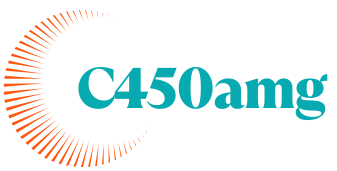Table of Contents
ToggleIn a world increasingly relying on technology, a web development school might just be the golden ticket you’ve been searching for. Picture this: you, a code wizard, creating stunning websites while sipping coffee in your pajamas, sounds enticing, right? With the tech industry booming, it’s no wonder many are trading in their mundane nine-to-fives for a vibrant career in web development. So, what’s stopping you from diving into this exciting world? Let’s unravel the mysteries of web development schools and discover how they can transform your life.
What Is a Web Development School?

A web development school is an educational institution focused on teaching students the essential skills to build and maintain websites. These schools offer a structured curriculum that covers various aspects of web development, from coding languages like HTML, CSS, and JavaScript, to design principles and user experience. In essence, a web development school prepares students for a career in a thriving field, equipping them with the necessary tools and knowledge to succeed.
What makes these schools particularly appealing is their hands-on approach, allowing students to engage in real-world projects, collaborate with peers, and apply their skills in a practical context. Unlike traditional educational institutions, web development schools often emphasize speed, relevance, and adaptability to the ever-changing tech landscape.
Benefits of Attending a Web Development School
Attending a web development school comes with a myriad of benefits. Firstly, students gain access to a fast-paced learning environment tailored to today’s market demands. Many web development programs offer flexible schedules, allowing students to balance their studies with work or personal commitments.
Also, these schools often have strong connections within the tech industry. This opens up opportunities for internships and networking, which can be crucial for job placement after graduation. With instructors who are often industry professionals themselves, students receive relevant insights that simply can’t be found in textbooks.
Besides, completing a web development program can significantly boost a resume, setting applicants apart from those who lack formal training. Many employers look favorably upon candidates who have dedicated time to mastering the skills necessary for web development, making graduates more marketable.
Types of Web Development Programs Offered
Web development schools provide a variety of programs tailored to different learning styles and career objectives. Here are some popular options:
Bootcamps
Bootcamps are intensive programs that typically last from a few weeks to a few months. These fast-paced courses are designed for those looking to make a career change quickly.
Associate Degrees
An associate degree in web development generally takes two years to complete. This option often combines foundational courses in web development with general education classes, providing a well-rounded education.
Bachelor’s Degrees
A bachelor’s degree in web development or a related field delves deeper into both technical and theoretical aspects. Students often learn topics such as software engineering, databases, and project management.
Online Courses
For self-motivated learners, various online platforms offer web development courses that can be completed at one’s own pace. This option is flexible, allowing individuals to learn without committing to a full-time program.
How to Choose the Right Web Development School
Selecting the right web development school can feel overwhelming, but several key factors can help simplify the decision-making process:
- Curriculum: Review the course content to ensure it covers essential topics in demand within the industry.
- Accreditation: Verify if the school is accredited by a recognized body. This often translates to quality education and may be a requirement for employers.
- Instructor Expertise: Research the instructors’ backgrounds. Ideally, they should have substantial experience in web development.
- Success Stories: Look for testimonials or success stories from former students. Their career progress can indicate the quality of education provided.
- Cost and Financial Aid: Consider tuition costs and explore available financial aid options. A quality education is an investment, but there’s no harm in seeking assistance to make it affordable.
Essential Skills Taught in Web Development Schools
Web development schools aim to cultivate a rich skill set to equip graduates for the workforce. Here are some essential skills typically taught:
Programming Languages
Students learn various programming languages, including HTML, CSS, and JavaScript, forming the cornerstone of web development.
Responsive Design
Understanding responsive design principles ensures that websites function well on various devices, a crucial aspect of modern web development.
Version Control Systems
Familiarity with tools like Git helps developers manage changes to their codebase, enhance collaboration, and track edits effectively.
Problem-Solving Skills
Critical thinking and problem-solving skills are integral to tackling coding challenges. Courses often encourage students to confront and resolve real-world issues.
User Experience (UX) Principles
An understanding of user experience helps developers create intuitive websites, ensuring visitors can navigate and find what they need efficiently.
Career Opportunities After Completing a Web Development Program
Upon graduating from a web development program, individuals unlock a plethora of career opportunities. Here are some popular roles:
Front-End Developer
Front-end developers focus on the visual elements of a website, ensuring that users have an engaging experience.
Back-End Developer
Back-end developers work behind the scenes, managing databases and server operations to ensure everything runs smoothly.
Full-Stack Developer
These versatile developers are proficient in both front-end and back-end technologies, making them invaluable in dynamic development environments.
UX/UI Designer
Focusing on user experience and interface design, UX/UI designers craft engaging, user-friendly applications and websites.
Project Manager
For those with leadership skills, project management roles offer the chance to oversee development teams and coordinate projects effectively.




